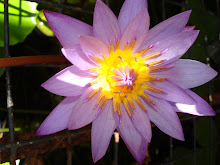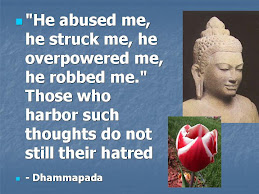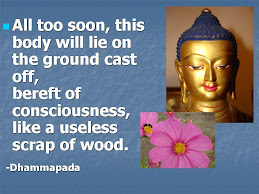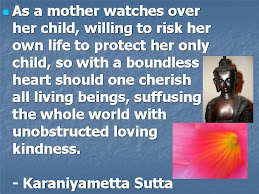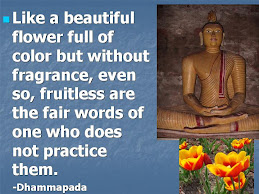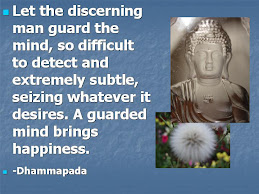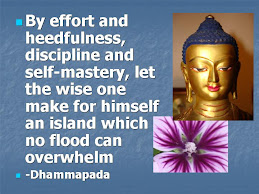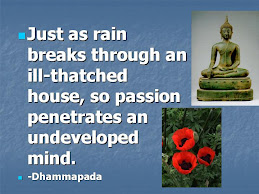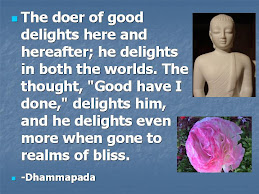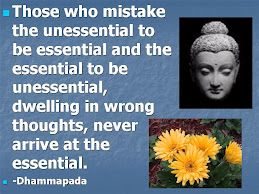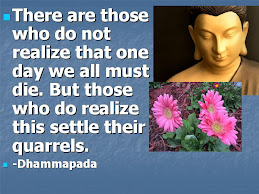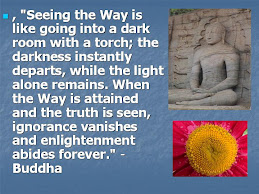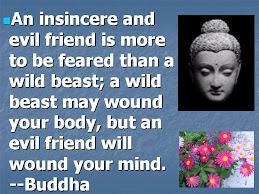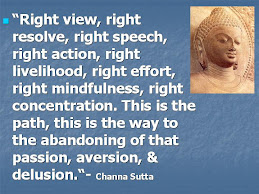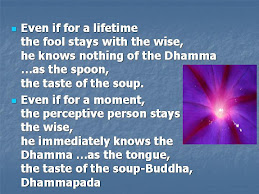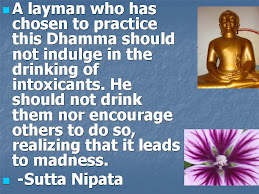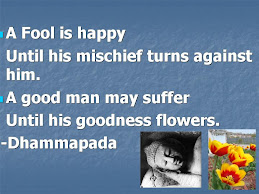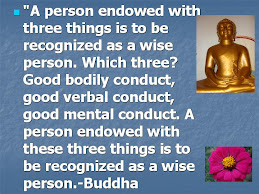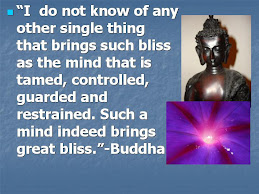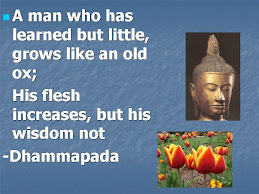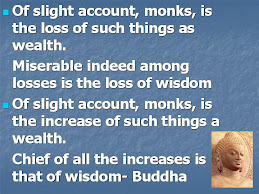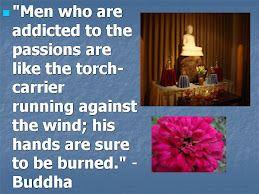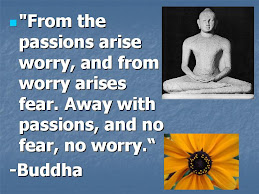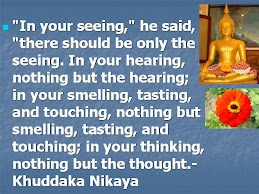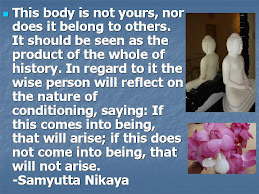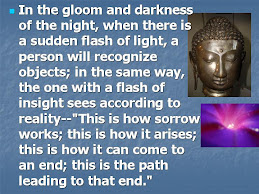Sunday, March 30, 2008
Saturday, March 29, 2008
Unobstructed loving kindness....
Wednesday, March 26, 2008
Planting Dhamma Seeds
The Uganda Buddhist Centre is a major initiative to secure a firm and lasting spiritual home for original Buddhist teachings, and its practice, on African soil. This is being accomplished by the establishment of the Centre for study and practice of Buddhism, thus creating the first ever Buddhist Centre in Uganda and massively increasing Buddhism in Africa. Our Future:The first phase in the establishment of the Uganda Buddhist Centre found support primarily from our Buddhist friends in other countries such as Japan, Thailand, and the United States. In the near future, our Centre will depend largely on generous funding from international sources until a strong Ugandan Buddhist community develops. For further information,
please visit: www.ugandabuddhistcentre.org
Saturday, March 22, 2008
How can we stop this karma machine ?

Supposing you want to fully understand how a machine really works, for example a car, you first have to read about cars and gain knowledge about how they work. This alone is not enough to fully understand the mechanics of a car. You also need real hands on experience. Then you can visit a car repair shop or a car assembly plant to learn more. If you are really adventurous you can even get an old car and take it apart and then put it back together again.
Wednesday, March 19, 2008
Tuesday, March 18, 2008
"Suffering follows him like the wheel that follows the foot of the ox"
Sunday, March 16, 2008
"Happiness follows him like his never-departing shadow"
Saturday, March 15, 2008
As the rising of the sun...

Wednesday, March 12, 2008
"Recycling' in this samsara

"A man who is greedy... pain invades him as water, a cracked boat"

for fields, land, gold,
cattle, horses,
servants, employees,
women, relatives,
many sensual pleasures,
is overpowered with weakness
and trampled by trouble,
for pain invades him
as water, a cracked boat"- Buddha
Kama Sutta -Sensual Pleasure
Saturday, March 8, 2008
"I too am a cow! I too am a cow!"

Wednesday, March 5, 2008
"Like a mural .... painted on a wall"

like a magic show in the midst of a crowd — you run blind after what is unreal. "
Subha Jivakambavanika -Subha and the Libertine
Monday, March 3, 2008
"Leaves in my hand"

"The leaves in the hand of the Blessed One are few in number, lord. Those overhead in the forest are far more numerous."
"In the same way, monks, those things that I have known with direct knowledge but have not taught are far more numerous [than what I have taught]. And why haven't I taught them? Because they are not connected with the goal, do not relate to the rudiments of the holy life, and do not lead to disenchantment, to dispassion, to cessation, to calm, to direct knowledge, to self-awakening, to Unbinding. That is why I have not taught them.
"And what have I taught?* 'This is stress... This is the origination of stress... This is the cessation of stress... This is the path of practice leading to the cessation of stress': This is what I have taught. And why have I taught these things? Because they are connected with the goal, relate to the rudiments of the holy life, and lead to disenchantment, to dispassion, to cessation, to calm, to direct knowledge, to self-awakening, to Unbinding. This is why I have taught them.
"Therefore your duty is the contemplation, 'This is stress... This is the origination of stress... This is the cessation of stress.' Your duty is the contemplation, 'This is the path of practice leading to the cessation of stress.''-Simsapa Sutta -The Simsapa Leaves
Sunday, March 2, 2008
Carrying the "burden"

He said: "Now this, monks, is the noble truth of stress: Birth is stressful, aging is stressful, death is stressful; sorrow, lamentation, pain, distress, & despair are stressful; association with the unbeloved is stressful, separation from the loved is stressful, not getting what is wanted is stressful. In short, the five clinging-aggregates are stressful."
Saturday, March 1, 2008
"Having enjoyed & given...he goes to the heavenly state"

the vessel salvaged
is the one that will be of use,
not the one left there to burn.
So when the world is on fire
with aging and death,
one should salvage [one's wealth] by giving:
what's given is well salvaged.
What's given bears fruit as pleasure.
What isn't given does not:
thieves take it away, or kings;
it gets burnt by fire or lost.
Then in the end
one leaves the body
together with one's possessions.
Knowing this, the intelligent man
enjoys possessions & gives.
Having enjoyed & given
in line with his means,
uncensured he goes to the heavenly state.





